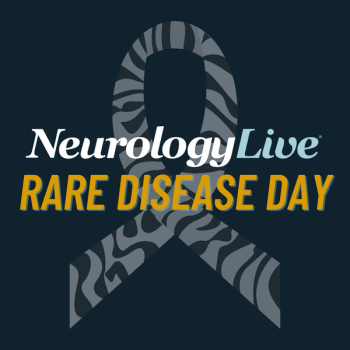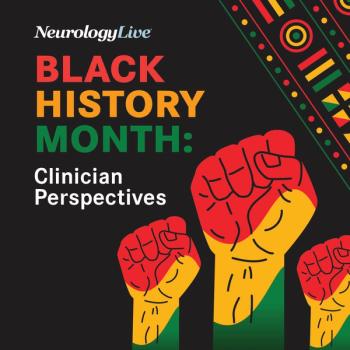
Plasma P-tau217 was associated with cognitive decline across several cognitive tests in 2 different cohorts and with conversion to AD dementia in the large-scale, longitudinal BioFINDER-1 cohort.

Marco Meglio, Assistant Managing Editor for NeurologyLive, has been with the team since October 2019. Follow him on Twitter @marcomeglio1 or email him at [email protected]

Plasma P-tau217 was associated with cognitive decline across several cognitive tests in 2 different cohorts and with conversion to AD dementia in the large-scale, longitudinal BioFINDER-1 cohort.

Originally approved under the accelerated approval pathway, a final decision on a traditional approval for lecanemab is expected to come in early July.

Findings showed that global cognition declines in the prediagnostic period in men but not women with incident Parkinson disease, further indicating cognitive heterogeneity in the prodromal period by sex.

Among countries with non-zero mechanical thrombectomy access, there was a 460-fold difference in availability of this care between the country with the highest and lowest access rate reported.

Early data has shown a substantial neuroprotective benefit in response to c-Abl inhibition by IkT-148009.

On PET imaging, amyloid continued to accumulate over time, with participants in the solanezumab and placebo groups showing similar increases over time.

The first and only approved CGRP nasal spray for acute migraine is expected to be available in pharmacies in July 2023.

Treatment with a lower dose of CNM-Au8 resulted in significantly decreased risk of death, feeding tube placement, assisted ventilation, and all-cause hospitalization, among other survival outcomes.

Batoclimab, a fully human anti-FcRn monoclonal antibody, has demonstrated an ability to significantly alleviate patients’ symptoms and improve quality of life in myasthenia gravis.

Compared with healthy controls, those with isolated RBD performed significantly worse on all cognitive assessments except in tasks of executive function.

The director of IT and Neuroinformatics Development at the Buffalo Neuroimaging Analysis Center provided perspective on the sudden explosion of artificial intelligence, and how it can be applied to MS care.

Efgartigimod resulted in rapid impact on health-related quality of life, with improvements that were consistent across multiple measures and were similar for the effect seen across 2 treatment cycles.

The effect of cognitive rehabilitation on personalized cognitive goals was specifically found 6 months after treatment completion, whereas the benefits on patient-reported cognitive complains did not persist.

Supplementary data from the phase 3 Clarity AD study served as the basis for the lecanemab’s new review, for which a decision is expected to come by July 6, 2023.

Taylor Gonyou, DO, a multiple sclerosis fellow at Michigan Institute for Neurologic Disorders, detailed a proteomic biomarker panel that gauges multiple sclerosis disease activity, with potential to impact clinical decision-making.

Now 4 years after the approvals of the first calcitonin gene-related peptide inhibitors, new therapies are being developed to address the lingering needs of patients with refractory migraine.

Between the 2 therapies, ozanimod was associated with significantly lower risks of safety outcomes, including adverse events leading to discontinuation, herpetic infections, bradycardia, and abnormal liver enzymes.

The chair of the Department of Neurology at Cedars Sinai Medical Center provided perspective on National MS Education and Awareness Month, and the changes to MS education in recent years.

In recognition of Rare Disease Day, the NeurologyLive® team offered an extensive update on the state of care and treatment for a few rare neurological diseases, including Pompe disease, Rett syndrome, among others.

In a dose-ranging study, the gene therapy achieved 78% Gb3 substrate clearance at 6 months and 77% reduction in urine podocyte loss in 1 of the first kidney biopsies.

Compared with those on an unrestricted diet, patients with MS on intermittent calorie restriction showed greater cognitive performance, as assessed by SDMT, after 12 weeks dieting.

The ozanimod group demonstrated significantly lower odds of safety outcomes such as nasopharyngitis, diarrhea, and urinary tract infection relative to diroximel fumarate.

Treatment with either rituximab and ocrelizumab, 2 FDA-approved therapies that target CD20, resulted in similar odds of experiencing a clinical disease activity in both unadjusted and adjusted analyses.

Between pretreatment naïve patients and those previously on disease-modifying therapies, treatment with cladribine resulted in stable scores on Symbols Digit Modalities Test and other cognitive assessments.

Mind Moments®, a podcast from NeurologyLive®, brings you an exclusive interview with Darin Okuda, MD. [LISTEN TIME: 21 minutes]

Non-Hispanic Black and Hispanic or Latino individuals on ocrelizumab did not demonstrate significantly greater risk on 24-week confirmed disability progression relative to non-Hispanic Whites.

To honor Black History Month, NeurologyLive® spoke with influential Black clinicians on the leaders they look up to, the ongoing fight to overcome racial disparities, and ways to encourage diversity in health care.

Epworth Sleepiness Scale scores improved by an average of 4.3 points overall, with more than 90% of patients reporting perceived improvements in their excessive daytime sleepiness.

The program committee vice-chair of ACTRIMS provided perspective on the upcoming forum, including the notable sessions, themes, and presentations the clinical community should be aware of. [WATCH TIME: 7 minutes]

The director of Cleveland Clinic’s Cerebrovascular Center provided clinical perspective on the treatment decisions mobile stroke units face, and whether directly transferring patients to angiography suite is necessary.